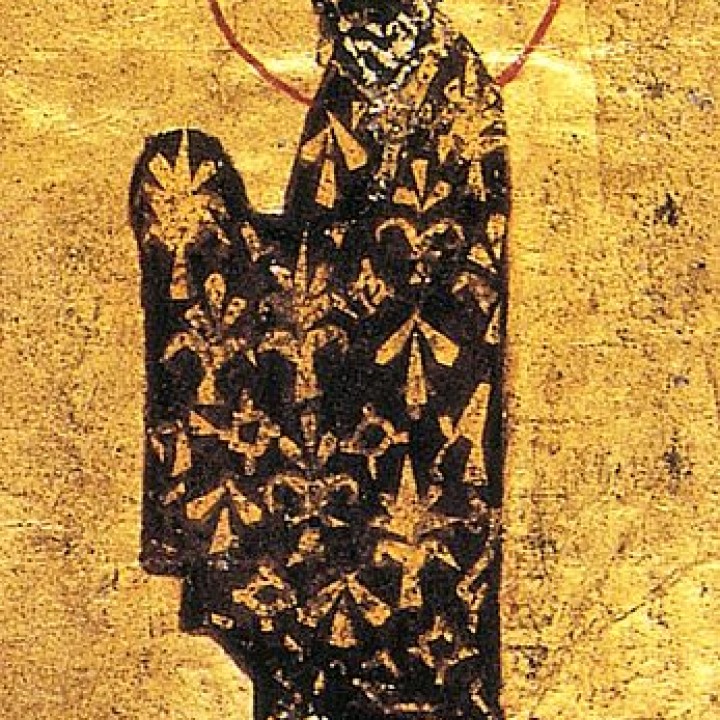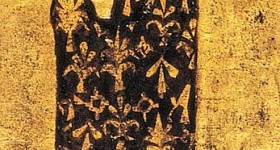Alexius Comnenus, the defender of the Byzantine empire

At this point in my life I am infatuated with Byzantine History. So I thought to deal for a while with one of my favourite emperors Alexius Comnenus. When the byzantine empire was thought to be at its needs, he restored it and defended it successfully again and again and again. That was a combination of political acumen and military intelligence. In the following paragraphs I describe some of the events that raised his profile in my eyes.
In a previous post I described how Alexius have succeeded in rescuing the Greek lands. Even so, the remainder of the Balkans was in turmoil. In his search for troops he recruited a force of nearly 3000 from the heretical Paulicians that settled around Philipopolis. This Paulicians were situated very close to Constantinople and at any given time they could cut its communications. So, Alexius arrested a large number of them, exiled their chiefs and scattered the rest of the community.
His attempts, though, caused the reaction of the Petcheneks, who thought that Alexius aimed at the restoration of Byzantine rule in the northern Balkans. The war between the two powers lasted for years, until April 1091 when the Byzantines won a decisive victory. The Petcheneks were overwhelmed. The Byzantines allowed their remnants to settle in the Vardar valley (Macedonia), guarding the approaches to Thessalonika (the largest city in Macedonia). A second decisive victory over some of the Petcheneks allies, the Cumans, took place in 1094. That was the turning point for the establishment of Byzantine rule over the Balkans as far north as the Danube. Even the Serbs came to terms with Alexius.
But the Byzantine rule in the Balkans was harsh and it had most of the characteristics of a military occupation. The imperial administration caused the fleeing of peasants to the forests in order to escape tax farmers. The peasants who did not manage to leave were rounded up to serve in the Byzantine armies.
Now that the Balkans were coming under Byzantine administration Alexius was free to turn to the problem of Asia Minor. Large parts of the land had already fallen in the hands of the Turks. Although the emperor started preparing for a war in the East, his plans had to be shelved, when news arrived at Constantinople that hordes of westerners were making their towards Byzantium. For the year 1096 and beyond Alexius’ energies would be devoted to supervising the passage of the first crusade through his territories.
By the spring of 1097 the crusaders were ready to cross over to Anatolia. Alexius tried to use the opportunity as best he could, so he persuaded their leaders to lay siege to the city of Nicaea, the seljuq capital of Anatolia. At the same time he provided the crusades with a small force under his commander Tatikios. This commander was supposed to guide the crusaders across Anatolia and to see that they fulfilled their promise to return the conquered Byzantine territories.
Alexius was probably hoping to use the crusaders to recover control over the Euphrates frontier. But the key to a permanent restoration of Byzantine authority in this region was Antioch. The crusaders won a series of victories in Anatolia and managed to lay siege to Antioch. By that time, the promises they gave to the emperor faded away and there was no question of returning the cities of Edessa or even Antioch under Byzantine control. Once the crusaders secured the city of Antioch they turned towards Jerusalem. But this time they had to cooperate with the Byzantine forces operating along the Syrian coast.
By the year 1100 reinforces from the West arrived at Constantinople and from there they headed towards the south. However, close to Amaseia they got severely mauled and they had to return to the Black Sea coast. Alexius became the scapegoat for this failure, since he did not manage to help the crusaders. So, the westerners came to regard the Byzantines as enemies rather than allies.
The emperor, since he was militarily in an inferior position, used his diplomatic skills in order to take control over the newly acquired lands. He gathered around him many Norman princes who opposed Bohemund, one of the leaders of the crusade, while he used the meager Byzantine army in order to cut off the communications with southern Italy.
Finally, peace was made at Devol in 1108. Bohemund was to keep Antioch, but only on condition that he remained the emperor’s liegeman. Bohemund also promised to provide Alexius with military help whenever he requested it.
It seems that Alexius’s perseverance restored Byzantine prestige and power. Byzantium was again the dominant power in the Near East and the Balkans. However, the foundations of this power were very different from those of the Empire in previous years. Outside the restricted lands around the Aegean, Alexius’s authority was personal in character. The crusaders were his lieges; the Sepjuq emirs his federates; the Venetians his servants. This gave him some claim to moral authority but it was no substitute for the strong administrative system which had held together the empire under the previous emperor. Even in those areas where a regular provincial administration existed, it was increasingly permeated by private interests. But, if Alexius had restored the appearance of power, his work gave his heirs hope that a full restoration of Byzantine authority was still possible.

